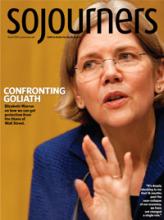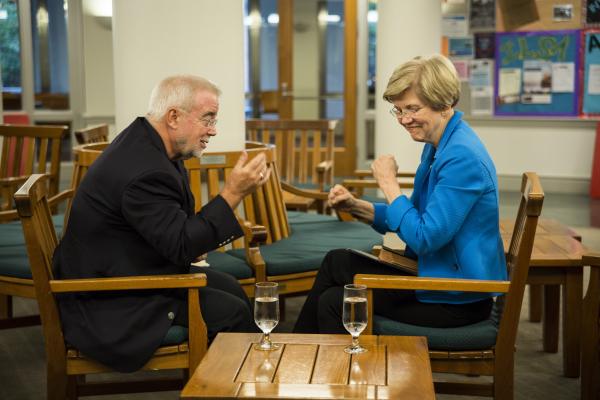Elizabeth Warren is more than just the head of Congress’s panel reviewing the bank bailout (officially, the Troubled Asset Relief Program). Along with being a Harvard Law professor, she’s also a plain-spoken and passionate advocate for everyday people who is deeply motivated by her Oklahoma Methodist upbringing, as she described in an interview with Sojourners editor-in-chief Jim Wallis and assistant editor Jeannie Choi this February.
Wallis: Particularly for people of faith and conscience, what’s at stake in the battle over financial regulation that we’re in now?
Warren: Our future is at stake, and the future of our children. The story works this way: We had a boom-and-bust economy from 1794 until 1930. Our young nation would lurch from moments of great prosperity to moments of economic panic. Coming out of the 1930s, our leaders crafted a set of basic rules that put fairness into the marketplace: FDIC insurance that made it safe to put money in banks; Glass-Steagall, that said banks that take deposits cannot go out and speculate with your money; some honesty rules for Wall Street through the SEC. Those rules brought us 50 years of economic security and prosperity.
By the 1980s, some of those were outmoded—but instead of trying to think through what kind of rules we need to create a fair marketplace, we just began to throw the rules out. The credit marketplace became a lawless arena.
Read the Full Article

